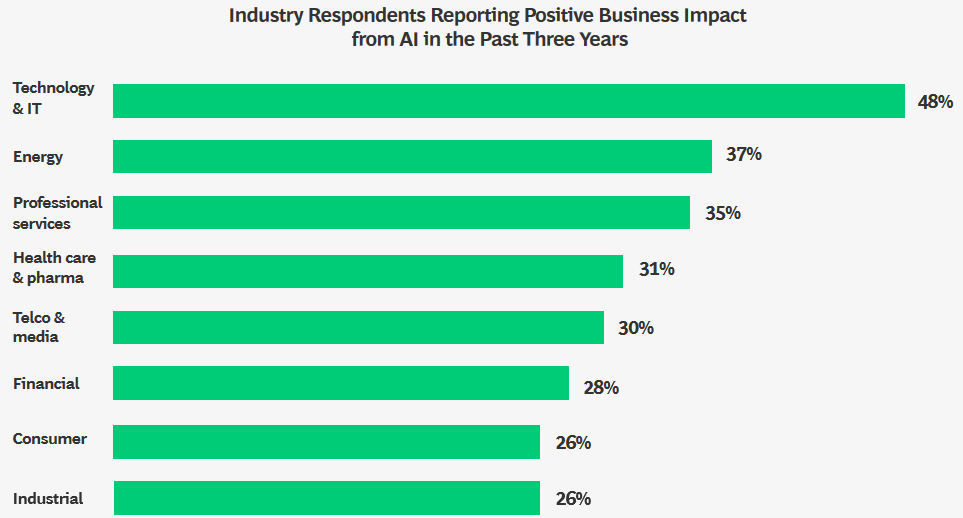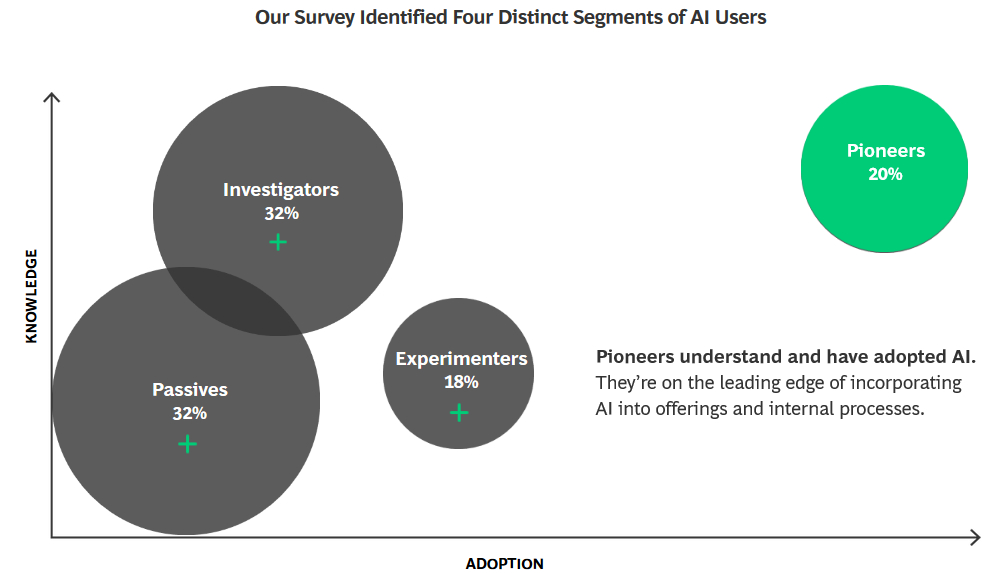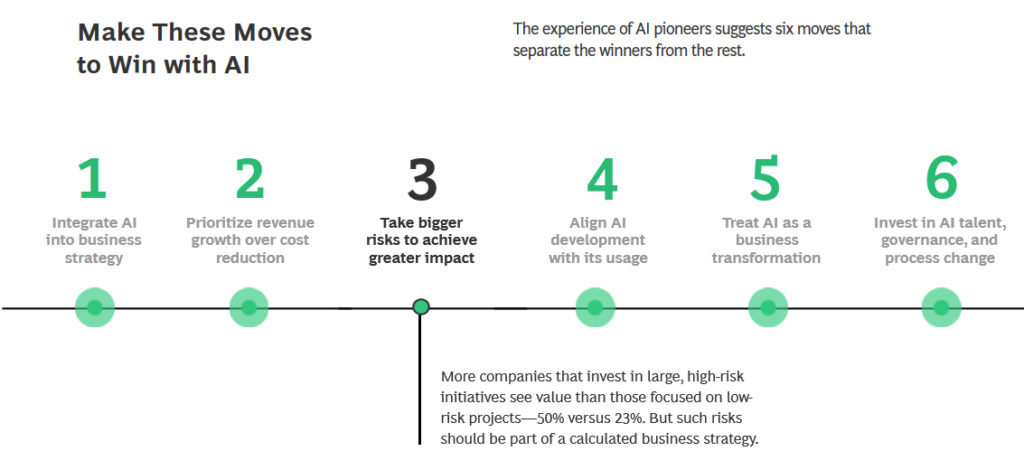
After several decades of progress, AI technology is now poised to become a sig-nificant source of value for a wide range of businesses. In the 2019 MIT Sloan Management Review and Boston Consulting Group (BCG) Artificial Intelligence Global Executive Study and Research Report, 9 out of 10 respondents agree that AI represents a business opportunity for their company.In addition, a growing number of leaders view AI as not just an opportunity but also a strategic risk: “What if competitors, particularly unencumbered new entrants, figure out AI before we do?” In 2019, 45% perceived some risk from AI, up from an already substantial 37% in 2017. This shift suggests an increasing awareness of and concern with competitors’ use of AI. In China, perceived risk from AI is even higher.Significant challenges remain, however. Many AI initiatives fail. Seven out of 10 companies surveyed report minimal or no impact from AI so far. Among the 90% of companies that have made at least some investment in AI, fewer than 2 out of 5 report obtaining any business gains from AI in the past three years. This number improves to 3 out of 5 when we include companies that have made signifi-cant investments in AI. Even so, this means 40% of organizations making significant investments in AI do not report business gains from AI.The crux is that while some companies have clearly figured out how to be successful, most compa-nies have a hard time generating value with AI. As a result, many executives find themselves facing a set of AI realities: AI is a source of untapped opportunity, it is an existential risk, and it is difficult. Above all, it is an urgent issue to address. How can executives exploit the opportunities, manage the risks, and minimize the difficulties associated with AI? How should they navigate all three factors?

Our findings — based on a survey of more than 2,500 executives and 17 interviews with leading experts — provide a data-driven view of what organizations that succeed with AI are doing and what real success with AI looks like. Companies that cap-ture value from their AI activities exhibit a distinct set of organizational behaviors. They:•Integrate their AI strategies with their overall business strategy.•Take on large, often risky, AI efforts that priori-tize revenue growth over cost reduction.•Align the production of AI with the consump-tion of AI, through thoughtful alignment of business owners, process owners, and AI ex-pertise to ensure that they adopt AI solutions effectively and pervasively.•Unify their AI initiatives with their larger busi-ness transformation efforts.•Invest in AI talent, data, and process change in ad-dition to (and often more so than) AI technology. They recognize AI is not all about technology. More: www.bcg.com

More: Winning With AI. Pioneers Combine Strategy, Organizational Behavior, and Technology. OCTOBER 2019RESEARCH REPORT, By Sam Ransbotham, Shervin Khodabandeh, Ronny Fehling, Burt LaFountain, and David Kiron.